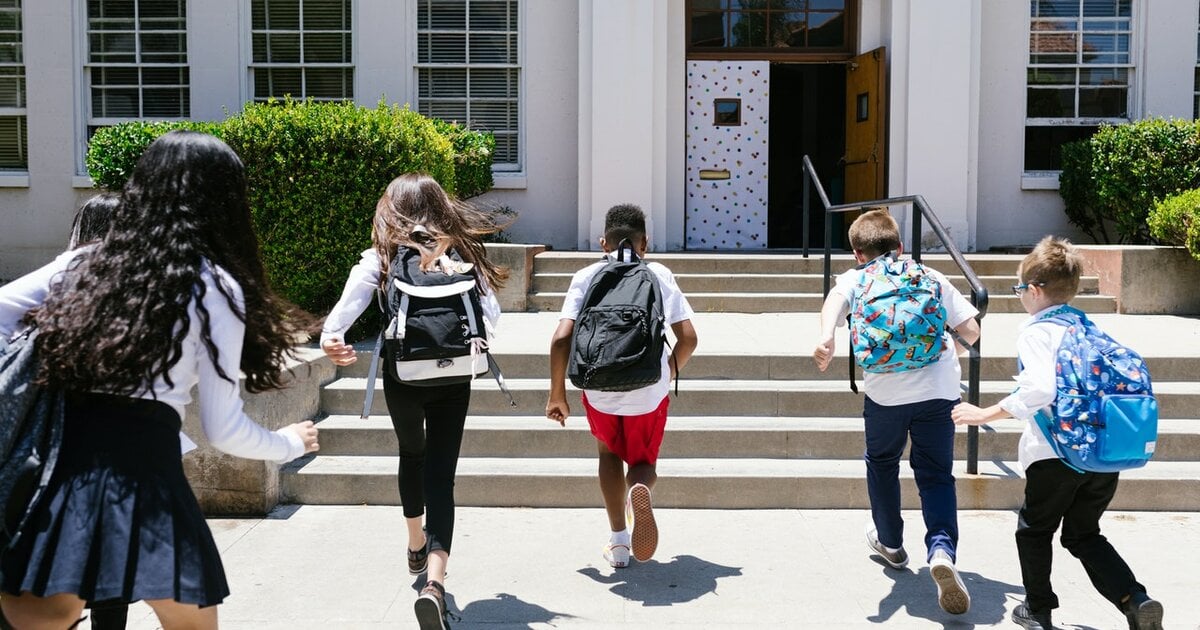How To Build And Maintain A Positive School Reputation In 2022
Why A Good School Reputation Matters
Today, it’s easier than ever for a parent to find all the information they could want about an institution with just a tap on a screen. It allows them to ensure that they are making the right choice of where to send their children, and no school is free from the scrutiny of a concerned parent. Private schools hold prestige and the promise of good education, giving each student enrolled in their program the best chance of finding success at a university.
You may wonder why you should care about maintaining a high reputation for your school, and we’re here to answer that question. Your school is a business; like any other business, it needs investors. Appeal to students with a solid reputation that proves your program is safe and effective.
Parents want the best for their children; this includes giving them the chance to gain a solid education in a safe environment. There is a lot of uncertainty these days, so it’s no surprise that private schools are beginning to see an increase in enrollment rates. With this in mind, it’s more important than ever to investigate where your school’s reputation stands.
What Do Parents Look For In A Quality Private School?
Parents are valuable to private schools and essentially play the role of stakeholders. They invest their time and money in an institute with the expectation that it will benefit their child. Not only do parents consider an excellent reputation part of their search, but they can also influence(674) it by developing a favorable perception of the school and recommending it to other parents.
Choosing the right school is a decision that many parents don’t take lightly, especially when they are paying a high price for attendance. A well-known name can be essential in recognizing your private school, but it isn’t everything, and it’s not always positive. Previous research has pinpointed that there are generally four categories that parents look for when assessing private schools.
Ease of communication
It should come as no surprise that parents value being able to reach out and communicate with school faculty. The process's simplicity can factor into their perception of the institution's quality.
Quality of Education
Where public schools have to rely on standardized tests, private schools can focus on providing more individualized lessons that a student will be able to absorb.
Safety
Given current events, safety plays a significant role when parents search for an excellent school to send their children to. Many private programs offer to board, giving some students a play to live through the school year. Safety is paramount, as each parent has to trust that their child will be safe even away from home.
Good Teachers
Parents expect their children to attend lessons taught by competent teachers with knowledge and expertise about the subject and are treated well by their employers. Low student-teacher ratios mean that struggling students can get extra help from their instructors, keeping them from falling behind in their studies.
Of course, these four components are a part of a broader spectrum of variables parents focus on when searching for private schools. In a section further down, we look at the #1 rated private school in the US and examine the institution's qualities, giving you a better idea of what parents and students care about.

What Are The Benefits Of Your School Having A High Rating?
In short, a school needs a good reputation to thrive. Various factors go into it, and they tell parents whether or not your institute is a good investment. Becoming a high-reputable institution will also benefit you, the business directors, and the financial officers of your school.
These days, it takes more than just having a good name to appeal to potential future alums and stand out amongst competitors. The concept of school reputation is adapted from corporate reputation and should be approached in the same way a corporation does when considering the importance of building your program’s brand.
Building a good public image can take many years, but that work comes with great reward. As explained by Professor Gary Davies (p. 28), these are some of the valuable benefits that are relevant in an educational sphere:
The above points aren’t an extensive list, as there are many other competitive advantages that come with having a school that ranks highly in comparison to others.
How Can You Raise Your School’s Reputation?
Research is a valuable tactic essential for strengthening a brand’s image. It provides much-needed insight, like what your competitors are doing correctly and where they’re lacking. This information can pinpoint where your program might be lacking while giving a better idea of what parents of prospective students are looking for. Remember that parents have many options when it comes to where they may send their children, so strong research can help you discover what you’re doing right and what can be improved.
To uphold a strong image, you have to be able to engage and listen to your investors. Parents’ satisfaction is key to a school having a highly regarded image, as their satisfaction with a school plays a role in influencing the very image that initially drew them in. They’re more likely to recommend your institution to friends and speak positively of it through social media, further painting the program as credible.
Be adaptable and willing to change your curriculum. A school that isn’t willing to change and improve its methods, whether the manner of teaching or how it engages with its students, won’t be able to keep up with its competitors that can adapt to an ever-changing market.
What Is the #1 Private School In The US?
According to NICHE, the highest-rated Private High School in America is Phillips Academy Andover, an institution that has held this ranking for several years running. When we look into the statistics provided by NICHE, we can derive some valuable insight that may be an essential part of their success.
There are currently only 1,187 students enrolled and an even split between the male and female population, with just over 54% of the student population being white. This shows a naturally diverse institution that doesn’t lean toward enrolling a particular demographic over another.
They have a 5:1 student-teacher ratio, with an average of 13 students per class. In polls, students have expressed that they believe that teachers genuinely care about them, give engaging lessons, and can lead the classroom. This student-teacher ratio is a big draw-in for parents, as public schools suffer from a limited number of teachers and larger class sizes that make it difficult for them to keep control and engage with their students.
95% of students reported feeling safe at Phillips, which is vital given that most of the attendees live at the school throughout the year. It’s reassuring to any parent to know that their child enjoys their school and will always be protected, even when away from home and family for long periods.
There are a variety of events and school traditions that keep students engaged and foster a sense of community and culture. Students aren’t likely to grow bored as they have an assortment of options for well-funded clubs and organizations that allow students to engage with their peers and the outside community.
Phillips knows that students define its reputation. They provide a diverse and inclusive environment that allows their attendees to thrive and grow by taking the utmost care in keeping classes small. By doing this, instructors can work with every student’s needs and engage with the community to prepare students for the next step in their lives.
Conclusion
In the end, a school's reputation is comparable to a corporate reputation. Parents play the role of stakeholders by investing their money, loyalty, and children into your program and expect good results. Reputation is subjective and perceptual. If you want your school to hold a good image, the best way to begin is by appealing to students, parents, and staff.
When teachers are well paid and given smaller classrooms, they can focus on each student and offer a more personalized lesson. Students will feel that they are being heard and won’t struggle to get their teacher’s attention, a problem that can arise in large groups. They will go home and relay this positive experience to their parent, who will see the program in a favorable light. Parents will also speak positively of the program and may engage in advertising through word of mouth.








